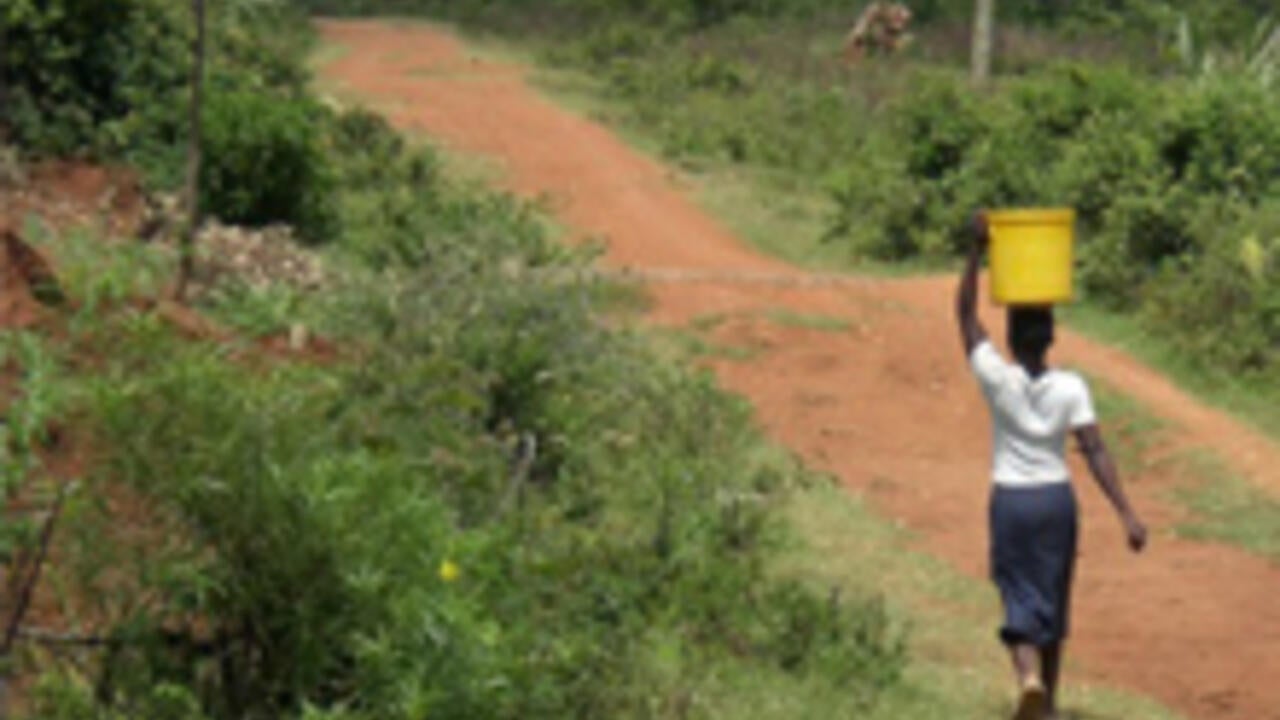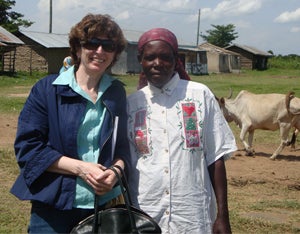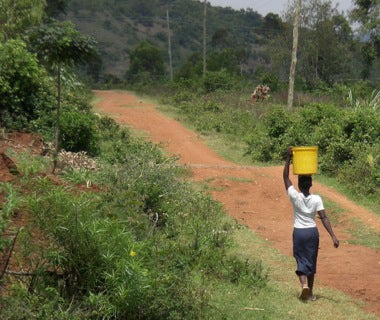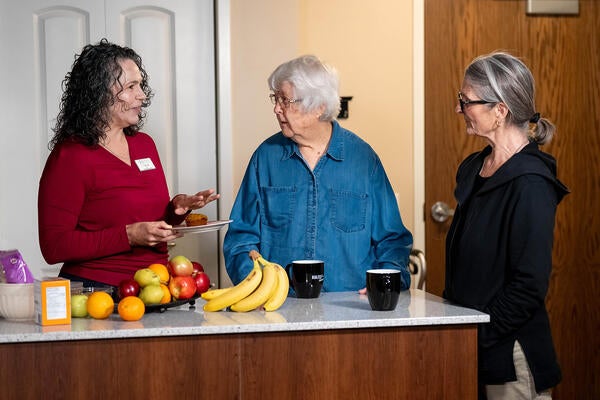
Dean of applied health sciences improves access to water for Kenyan villagers
Susan Elliott’s research plays a role in establishing a new sanitation facility for families in Usoma, Kenya.

Susan Elliott’s research plays a role in establishing a new sanitation facility for families in Usoma, Kenya.
By Christine Bezruki Applied Health Sciences Susan Elliott, Waterloo’s Dean of Applied Health Sciences, is helping to build a brighter future for the people of Usoma, Kenya, one brick at a time.
Susan Elliott, Waterloo’s Dean of Applied Health Sciences, is helping to build a brighter future for the people of Usoma, Kenya, one brick at a time.
For the last two years Elliott and her graduate students, Morgan Levison and Elijah Bisung, have been studying cultural attitudes towards water and water-related practices in the African village. In January, as part of this intensive research, ground was broken for a new water sanitation station, a facility that will dramatically improve the quality of life for residents in the community.
“We can’t work on the assumption that people appreciate fully the link between health and the consumption of contaminated water,” said Elliott, who has been to Africa many times.
There are also cultural factors affecting water use. Asking a family of nine to boil the 100 litres of water needed a day to survive, one litre at a time, is just not realistic. Chemical tablets used to treat water change the taste and can be difficult to obtain consistently; they are also expensive.
 Woman in Usoma, Kenya
Woman in Usoma, Kenya
Photo credit: Susan Elliott
“They can’t just pop in to the local convenience store to pick some up,” said Elliott.
The new sanitation station will include faucets for drinking water, latrines, showers and a place for women to do laundry. The Rotary Club provided $10,000 to conduct a hydrologic survey and drill the bore hole, and private funds will cover the installation of the faucets and latrines.
Yet despite the generous donations, there is no money left to cover the construction of a building around the facility. Instead of letting this hinder the project, Elliott sees it as an opportunity for others to get involved.
Reaching out to her Canadian friends and colleagues, Elliott started a “buy a brick” program. For $10, individuals can have their name inscribed on a brick made by local alternative building technologies workers in partnership with the community.
“It’s my own little side project,” said Elliott, whose goal is to sell 1000 bricks. “If you gave a Canadian community $10,000 what could they do with it? In Africa, $10,000 can change hundreds and hundreds of lives.
“They don’t need much. They just need a hand up. Definitely not a hand out.”
Next year, after construction is completed on the facility, Bisung will return to Usoma to re-evaluate community knowledge about water and health.

Read more
How machine learning empowers collaboration between computer science, math and medical research

Read more
Dr. Heather Keller discusses the need to transform mealtimes in Canada’s long-term care homes from a service to a meaningful form of care

Read more
“I’m just like you.”
The University of Waterloo acknowledges that much of our work takes place on the traditional territory of the Neutral, Anishinaabeg, and Haudenosaunee peoples. Our main campus is situated on the Haldimand Tract, the land granted to the Six Nations that includes six miles on each side of the Grand River. Our active work toward reconciliation takes place across our campuses through research, learning, teaching, and community building, and is co-ordinated within the Office of Indigenous Relations.